5th Floor, West Tower, World Financial Centre
1 Dong San Huan Middle Road
Chaoyang District, Beijing 100020, China
Tel: +86 10 5081 5880

August 21, 2020
Post-2020 Shanghai International Financial Center Construction Seminar Held at S ...
On August 1st, 2020, the Post-2020 Shanghai International Financial Center Construction Seminar was successfully held at Shanghai Advanced Institute of Finance (SAIF), Shanghai Jiao Tong University (SJTU). Qing Wu, Vice Mayor of Shanghai and Chairman of the SAIF Board was in attendance. Guangshao Tu, Adjunct Professor of SJTU and Executive Director of SAIF, presided over the event. The seminar focused on the theme of Evaluation and Future Prospects for the construction of the Shanghai International Financial Center. The latest research findings of SAIF and NIFD were presented by: Feng Li, Associate Director of CAFR, Co-Director of SAIFR ( Shanghai Advanced Institute for Financial Research) and Professor of Accounting at SAIF; Yang Li, Chairman of the National Institution for Finance and Development (NIFD), Chief Expert and Chairman of the Academic Committee of the Shanghai Institute for Finance and Development (SHIFD) and Adjunct Professor of SAIF; and Gang Zeng, Deputy Director of NIFD. They commented that, although the interim goals of Shanghai's international financial center have been generally achieved, there is still a certain gap when benchmarking against world-class financial centers is considered. Under the current background of drastic changes in international and domestic markets, it is important to adhere to a distinctive development roadmap, seize new opportunities in the new era, further enhance Shanghai's position in the international financial sector, and strive for more rule-making power for China in the global financial community. In the subsequent panel discussion, the participating experts and scholars expressed their opinions and conducted in-depth and full exchanges of viewpoints.
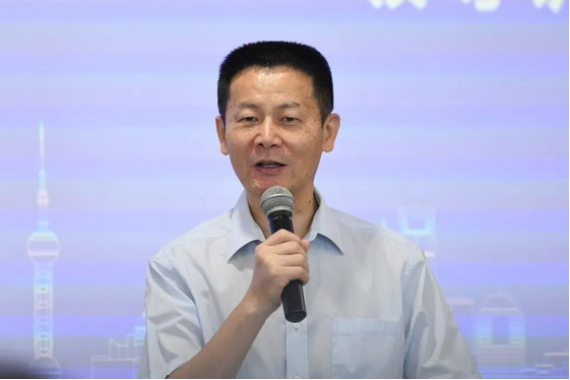
August 11, 2020
Zijiang Special Fund for Discipline Development Launched
On July 23rd, 2020, the Memorandum Signing Ceremony of Shanghai Advanced Institute of Finance (SAIF) and Shanghai Zijiang Foundation was held at the SAIF Xuhui Campus. Jia Fang, Head of Development and External Relations at SAIF, presided over the ceremony. Professor Chun Chang, Professor of Finance and Executive Dean of SAIF, Shanghai Jiao Tong University (SJTU); Han Liu, Chairman of Shanghai Zijiang Foundation; Lin Chen, Secretary General of Shanghai Zijiang Foundation; Kai Zhang, Assistant to Secretary General of Shanghai Zijiang Foundation; and other leaders and guests attended the event. In December 2018, Shanghai Zijiang Foundation signed a donation agreement with SAIF to set up the Special Fund for Socially Responsible Investment Discipline Development. In 2020, Zijiang proposed to change the purpose of its contributions and instead launch the Zijiang Special Fund for Discipline Development. It would further facilitate the training of financial professionals and academic research in the financial domain based upon the concept of public welfare, to better serve the national strategic goal of the construction of Shanghai into an international financial center. The Fund will extensively support the needs of SAIF’s overall discipline development framework, strive to achieve a flexible and diversified discipline development architecture, and inject new momentum into SAIF’s sustainable development. Witnessed by the guests, Executive Dean Chun Chang and Chairman Han Liu signed the donation memorandum on behalf of each party. This contribution reflects Zijiang's expectations for the cultivation of world-class financial professionals and its social responsibility to foster charity. It is also a recognition and acknowledgement of SAIF’s education philosophy. With the encouragement and aid of the Zijiang Foundation and other community leaders, SAIF will continue to make ongoing progress towards the goal of building a world-class financial school and cultivating more outstanding financial professionals for the both the state and society.
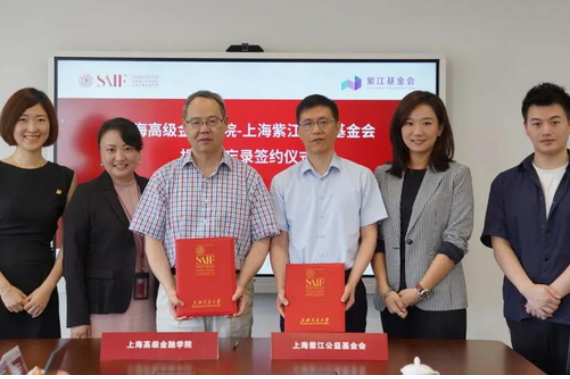
August 05, 2020
Yang Li Appointed as Adjunct Professor of SAIF
On August 1st, 2020, Yang Li was appointed as Adjunct Professor of Shanghai Advanced Institute of Finance (SAIF), Shanghai Jiao Tong University (SJTU). Yang Li is a well-known economist, Chairman of the National Institution for Finance and Development (NIFD), and Chief Expert and Chairman of the Academic Committee of Shanghai Institute for Finance and Development (SHIFD). At the appointing ceremony, Professor Guangshao Tu, Executive Director of SAIF, expressed his gratitude to Professor Yang Li for his continuous support for SAIF development. On behalf of the SAIF faculty team, Professor Jiang Wang, Chair of SAIF Academic Council, delivered a welcome speech for Professor Li. Professor Yang Li mentioned, in his following speech, that he was extremely privileged to be appointed as Adjunct Professor. He stated that over past years when he has had frequent cooperation and exchanges with many SAIF professors. In the future, NIFD and SAIF will both share their insights, contribute to the development of China's financial sector, and help to build Shanghai as an international financial center.
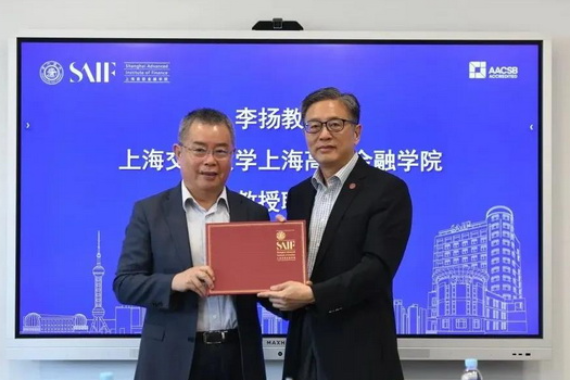
July 15, 2020
SAIF Proposals Selected by Shanghai Finance Society in 2020
Shanghai Finance Society recently announced a list of key research projects in 2020, which includes 3 research proposals submitted by Professors Chun Chang, Hong Yan, and Feng Li at the Shanghai Advanced Institute of Finance (SAIF). The proposals cover a variety of cutting-edge financial topics, including: international financial centers, (new) free trade zones, financial collaboration in the Yangtze River Delta, hi-tech innovation and entrepreneurship centers, FinTech, and the impact of the COVID-19 pandemic upon financial sectors and the economy. The Shanghai Financial Society received a total of 56 proposals, among which 36 were selected by the expert panel.

July 01, 2020
Xinlei Chen’s Research shortlisted for "Long-term Influence Award"
In June 2020, for a second time, the INFORMS Society for Marketing Science (ISMS) announced that a paper co-authored by Xinlei Chen was a finalist for the "Long Term Impact Award 2020". Professor Chen is currently a Professor of Marketing at Shanghai Advanced Institute of Finance (SAIF) at Shanghai Jiao Tong University. ISMS is a leading international association for professionals in operations research and analytics. The purpose of the award is to promote collegiality and best practices in marketing. The award is given annually to research papers which have made a significant long run impact upon marketing research and which have been published in Marketing Science, Management Science, or other INFORMS journals within a 6-10 year term. Professor Xinlei Chen received his Ph.D. in Marketing from the University of Minnesota. His research interests focus upon industrial organization, market competition, consumer choice, and marketing strategy. He specializes in pricing, branding, channel distribution advertising, and promotion. Prior to joining SAIF, he served as Professor of Marketing and Director of Brand Research Center at the Cheung Kong Graduate School of Business (CKGSB), and as Associate Professor and Finning Junior Professor of Marketing at the University of British Columbia.
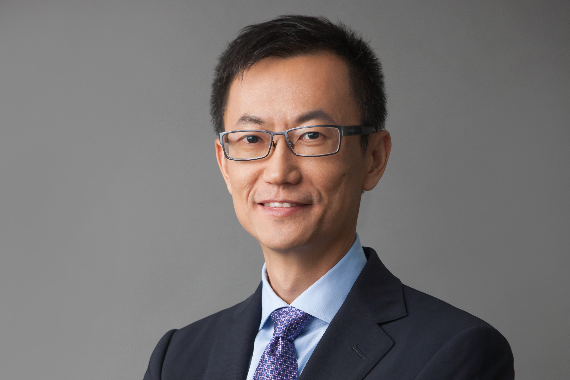
June 22, 2020
Competitiveness Report 2020 Released by SAIF and SSE
A joint research team composed of Shanghai Advanced Institute of Finance (SAIF) at Shanghai Jiao Tong University and the Capital Market Research Institute of Shanghai Stock Exchange (SSE) recently released the "Global Capital Market Competitiveness Report (2020)”. It shows that the competitiveness of China's capital markets have been improved significantly, and now rank 5th in the world. As a key component of the modern financial system, capital markets play a significant role in the competition of great world powers. In order to objectively reflect the evolution of China’s capital markets and to accurately benchmark best practices in the world’s major capital markets, the research team focused on major elements of core competency. It developed an evaluation system to assess the competitiveness of worldwide capital markets based upon four dimensions: institutional environment, market size, functionality, and quality. The team studied the world’s Top 20 markets in terms of both real economy and capital market size, and then calculated their capital market competitiveness indices.
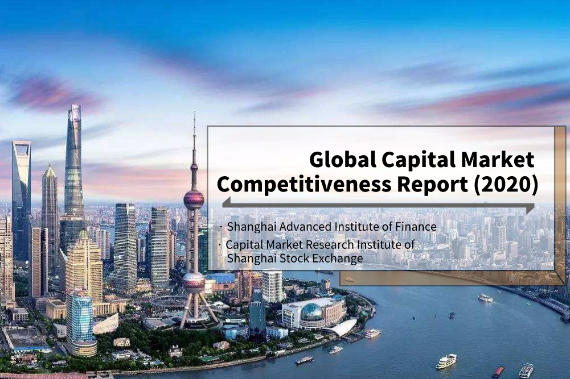
June 15, 2020
SAIF MF Program Again Ranked No.1 in Asia by FT
On June 15th, 2020, the Master of Finance (MF) Program at the Shanghai Advanced Institute of Finance (SAIF) at Shanghai Jiao Tong University (SJTU) was ranked No. 1 in Asia for the third consecutive time. Since its inaugural publication in 2011, the FT ranking has been considered one of the most authoritative benchmarks in the world. It rates business schools and their MF programs on 17 criteria in two key domains. The career progression domain, involving 7 metrics and weighing in at 58% of the total, is derived from a survey among alumni after three years of graduation. The other domain focuses on the diversity of business schools and their MF programs, which covers 10 metrics collected from survey questionnaires, weighing in at 42% of the total. SAIF distinguishes itself in the following rankings this year: "Faculty with Doctorates" (No.1 in the world), “Salary Today” (No.4 globally), "Salary Percentage Increase" (No.5 worldwide and No.1 in Asia) and "International course experience” (No.25 globally and No.1 in Asia). Overall, SAIF MF is ranked No. 13 among all 55 participating business schools and No. 1 in Asia for the third time. Among Asian schools in the ranking, SAIF is followed by Tsinghua University School of Economics and Management (No.15) and Guanghua School of Management of Peking University (No.17).
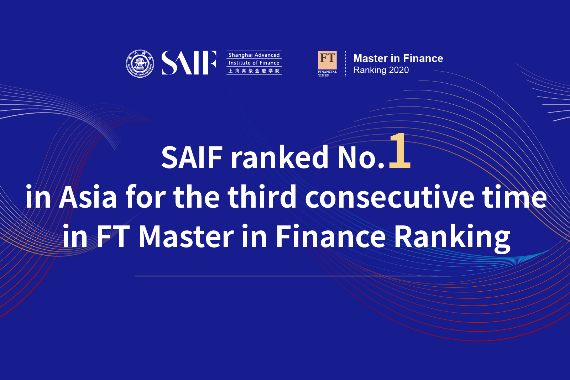
May 28, 2020
The Financial Cloud Summit 2020 Kicked Off
On May 7th, 2020, iFeng Finance, Shanghai Advanced Institute of Finance (SAIF), Shanghai Jiao Tong University (SJTU) and Global Financial Leaders Forum jointly kicked off the Finance Cloud Summit 2020. The theme of the one-week event was "Global Economy and Decision-making ", inviting guests from politics, business and academics to share their wisdom, analyze the challenges and opportunities of the global economy and explore the direction of breakthroughs and prosperity in the crisis. Tiankai Cui, Chinese Ambassador to the United States of America, Abhijit Banerjee, laureate of Nobel Prize in Economics in 2019, Stanley Fischer, former Vice Chairman of Federal Reserve, former Governor of the Bank of Israel and Honorary Chairman of Global Financial Leaders Forum, Lord Adair Turner, Chairman of the Institute for New Economic Thinking and former Chairman of Financial Services Authority in UK, Stephen A. Schwarzman, Chairman, CEO and Co-founder of Blackstone Group, Wuchang Zhang, leading economist in China, Guangyao Zhu, former Vice Minister of the Ministry of Finance, Yusuke Kawamura, Representative Director of the Center for Glocal Studies and Consultant of Daiwa Institute of Research, Yunlai Zhu, a financial professional, and many other experts were invited to share their insights. Moreover, Guangshao Tu, Adjunct Professor at SJTU, Executive Director of SAIF and Honorary Chairman of Global Financial Leaders Forum, Jiang Wang, Executive Director and Chair of Academic Council of SAIF and Chairman of Honorary Chairman of Global Financial Leaders Forum, Chun Chang, Professor of Finance and Executive Dean of SAIF and Chairman of Global Financial Leaders Forum, Hong Yan, Professor of Finance and Associate Dean of SAIF and Co-secretary General of Global Financial Leaders Forum, and Weihua Ma, Adjunct Professor at SAIF, former Executive Director, President and CEO of China Merchants Bank Co., Ltd., were also invited to serve as guest speakers, discuss a number of topics, including "Is now the darkest moment of the global economy?", "To re-examine the outlook of the Chinese economy in 2020" and "The new landscape of the post-COVID-19 industries", and share the wisdom of the global economy and decision-making options.
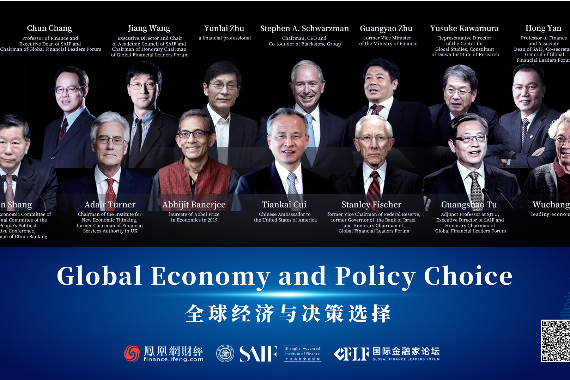
April 23, 2020
The Research Paper "Responding to Unexpected Global Disaster: Analysis on E ...
The COVID-19 pandemic has imposed an enormous and intensifying impact on the global society and economy. Major economies have been responding to the worldwide outbreak with extraordinary economic policies. In this regard, the team of China Academy of Financial Research (CAFR) at Shanghai Jiao Tong University (SJTU) recently released a report to systematically review and analyze the characteristics and development of the pandemic, its mechanism, transmission and actual impact on the global economy, as well as the policy responses, objectives and measures of major economies. It also provides a preliminary assessment and discussion of the effects and results of such policies. The report indicates the following findings: 1. COVID-19 is a unexpected global disaster. Unlike the endogenous economic recessions such as the Great Depression in 1929 and the global financial crisis in 2008, the pandemic is exogenous, while its development depends on global prevention and control, which reflects the transformation from an exogenous event to an endogenous one as well as the interaction between exogenous and endogenous elements. 2. The impact of COVID-19 on the society and its normal operation has caused the real economy to halt and has led to direct, comprehensive and enormous effects: (1) The demand has dropped significantly; (2) The supply has been greatly affected; (3) The financial market is in extensive tension and turbulence; and (4) All macroeconomic indicators have deteriorated, with increasing uncertainties. 3. During the evolution from a local outbreak to a pandemic, the responses of major economies have rapidly changed from "normal management" focusing on financial and economic stabilization, to "unusual responses" with the priority of COVID-19 prevention and control, while maintaining financial and economic stability. 4. The monetary, financial and fiscal policies of major economies concentrate on the goals of "1+5", that is: (1) to fight against COVID-19; (2) to protect people's livelihood; (3) to bail out businesses; (4) to stabilize the finance market; (5) to minimize the risk of an economic crisis; and (6) to guide the market to anticipate and prepare for economic recovery. These policies show the characteristics of "global emergency management", featuring continuous introduction, clear objectives, unprecedented intensity, abundant instruments (both conventional and unconventional), comprehensive coverage and national policy linkage. 5. Initial effects of the policies: (1) Direct financial supports for medical and healthcare resources, local finance, citizen assistance and corporate bailouts will extend 2-3 months, or even longer if necessary; (2) Financial markets are gradually stabilizing; (3) The effects of stabilizing the real economy and preventing economic crises will depend on the effectiveness of COVID-19 prevention and control efforts; and (4) The economic and financial policies of the governments have now played the expected role in stabilization to an extent. It is widely recognized that economic stability and recovery can only be possible after COVID-19 is completely under control, which will become the priority goal afterwards. 6. Specific and unusual responses call for direct intervention of the policies in the market, but in the long run, these interventions, including how they “exit”, will affect financial stability, macro leverage, fiscal policies, economic restructuring and to a deeper extent, conflicts in social structure, global spillover, macroeconomic policies and the relationship between the government and the market in many ways.

April 01, 2020
SAIF Held the Faculty and Staff Meeting of 2020 Spring Semester
On March 30th, Shanghai Advanced Institute of Finance (SAIF), Shanghai Jiao Tong University (SJTU) held the Faculty and Staff Meeting of 2020 Spring Semester. Prof. Guangshao Tu, Adjunct Professor of SJTU and Executive Director of SAIF, and Prof. Jiang Wang, Executive Director of SAIF and Chairman of SAIF Faculty Council, delivered speeches respectively. Prof. Chun Chang, Executive Dean of SAIF, and Prof. Qigui Zhu, Secretary of the CPC SAIF Committee, served as keynote speakers. Nearly 200 SAIF professors and staff attended the event on site or remotely.
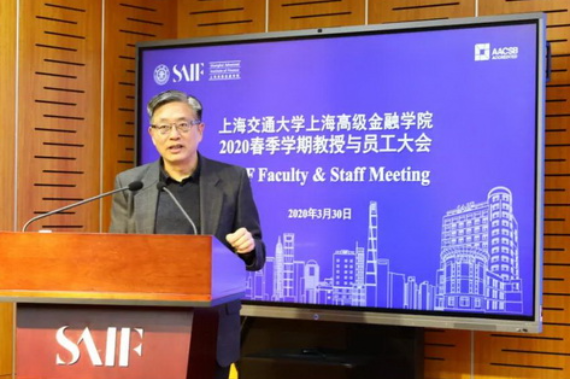

211 West Huaihai Road
Shanghai 200030, China
Tel: +86 21 6293 3500
9th Floor, Building T6, Hongqiao Hui
990 Shenchang Road
Shanghai 201106, China
3rd Floor, Building D, Chenfeng Building
800 Tongpu Road
Shanghai 200062, China
5th Floor, West Tower, World Financial Centre
1 Dong San Huan Middle Road
Chaoyang District, Beijing 100020, China
Tel: +86 10 5081 5880
1203 Tower 7, One Shenzhen Bay
Nanshan District, Shenzhen 518000, China
Tel: +86 755 8663 8815
© Shanghai Advanced Institute of Finance All Rights Reserved.


Top